May 24, 2025 | 16:24 GMT +7
May 24, 2025 | 16:24 GMT +7
Hotline: 0913.378.918
May 24, 2025 | 16:24 GMT +7
Hotline: 0913.378.918
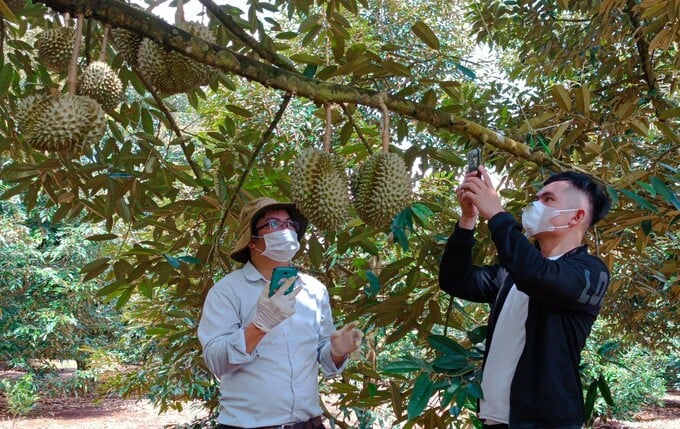
Members of Krong Pac Fruit Cooperative supporting Chinese officials in the inspection of durian farms. Photo: Quang Yen.
The General Administration of Customs of China (GACC) and the Department of Food Protection of Vietnam organized an online evaluation of 25 durian growing areas belonging to Krong Pac Fruit Cooperative in association with Dung Thai Son Import - Export Trading Joint Stock Company.
Mr. Vo Ngoc Huy, Deputy Director of Krong Pac Fruit Cooperative, said that so far, the Chinese side has finished examining the planting area code and the Cooperative is waiting for the results to be announced. According to Mr. Huy, over 600 hectares of the cooperative's land has been inspected with an output estimated at more than 1,000 tons.
In order to facilitate the evaluation work, the cooperative had to prepare for many different tasks. The cooperative is passive in the evaluation process in terms of documents, requirements from GACC but the cooperative was able to manage.
To prepare for the inspection, the Department of Plant Protection supported the cooperative with regards to some problems in the production process. Namely, the 5K process where farmers entering and leaving the farming area must ensure epidemic prevention requirements. In addition, cooperatives must also comply with records and farming diaries at the request of the Chinese side.
“During the inspection, the preparation and transportation between the farms encountered many difficulties. The most difficult aspect is the transmission lines in the farms, and the cooperative must maintain the network connection with the Chinese side. So far, the Chinese side has finished inspecting the cooperative's areas and we are waiting to send the first durians through the official channel", said Mr. Huy.
According to Mr. Huy, GACC's officials remarked that the cooperative's durian gardens produce many, large and round fruits during the inspection process. Furthermore, the cooperative's durian farms are all qualified in terms of the environmental criteria.
“The cooperative wants a stable output. To do this, a standard production process must be established. The cooperative wants the Chinese side to promptly issue the planting area code and announce which units are allowed for officially export because the cooperative was also evaluated by the Chinese side the previous year. If GACC does not issue the planting area code early, and businesses qualified to export will be late for the 2022 crop year. In that case, cooperatives and affiliated businesses will face even more challenges”, Mr. Huy informed.
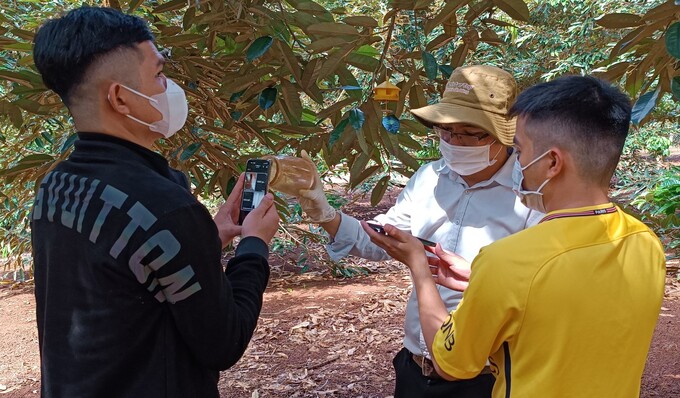
Harmful pest traps on durian trees are of interest to the Chinese side. Photo: Quang Yen.
As a business - cooperative association in building export material areas, Dung Thai Son Import-Export Trading Joint Stock Company and the cooperative have been preparing for this monumental event since 2020.
The company has organized training on the prevention of Covid-19, training on technical processes, on good agricultural production practices (GAP), as well as training for farmers on integrated pest management (IPM) on the durian farms. The durian farms must always comply with the production process of the cooperative as well as the company.
Mr. Le Anh Trung, Director of the material area of Dung Thai Son Import-Export Trading Joint Stock Company, said that because China still implements the Zero Covid policy, GACC is very focused on disease prevention management in the farm. Namely, measures to handle and prevent integrated pest management (IPM) on farms, plant quarantine, assessment of pesticide residues of agricultural products.
Moreover, GACC focused on questions related to the periodic inspection and investigation of harmful organisms, records of harmful organisms detected and handled; the implementation of integrated pest management (IPM); the use of fruit fly traps, layouts, trap results and the availability of fruit bags; records of harmful organisms control. At the moment, GACC has fundamentally finished inspecting the growing area and packaging facility, but it is still difficult to bring durian through official channels into the Chinese market.
“Dung Thai Son is one of the businesses that have been evaluated by the Chinese side for official durian export eligibility. However, the Chinese side has still not allowed to pilot the export, so many difficulties arise, especially when farmers trust and cooperate with businesses to fulfill the requirements set forth by the Chinese side. This delay, if prolonged, can easily make people lose faith in businesses and the government. Therefore, we propose that the Ministry of Agriculture and Rural Development request the Chinese side to promptly allow businesses that meet the requirements to pilot durian export into China", said Mr. Le Anh Trung.
According to Dak Lak Sub-Department of Crop Production and Plant Protection, GACC has conducted online evaluation of 38 durian area codes and 6 local packaging facilities for nearly 15 days. The total area that was inspected is 1,500ha.
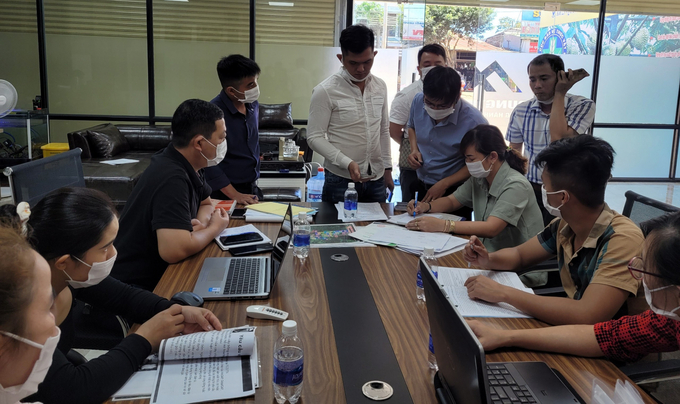
The Chinese side inspecting Krong Pac Fruit Cooperative. Photo: Quang Yen.
To prepare for this large-scale inspection, Dak Lak Sub-Department of Crop Production and Plant Protection has coordinated with the Department of Plant Protection to guide businesses and cooperatives in preparing documents for the Chinese side to evaluate online according to the regulations on the process of setting up and monitoring the growing area; and the process of setting up and monitoring packaging facilities and regulations under the Protocol on Phytosanitary for Vietnamese durian exports to China.
Through online evaluation sessions conducted by the Chinese side, businesses, cooperatives in growing areas and packaging facilities performed relatively well initially. However, they must still wait for the General Administration of Customs of China to announce the results.
“Some businesses and cooperatives that GACC evaluated online last time were not subject to re-evaluation. All growing areas and packaging facilities evaluated this time are newly established growing areas and packing facilities. The unit has guided businesses and cooperatives to complete the process of setting up growing areas, the process of setting up packaging facilities according to the standards set by the Department of Plant Protection and the Protocol. In the immediate future, the Sub-Department will continue to coordinate with the Department of Plant Protection, local authorities to monitor the growing areas and packaging facilities that have been evaluated by GACC so that the growing areas and packaging facilities will always comply with the regulations of the importing country”, stated Mr. Le Van Thanh, Director of the Sub-Department of Crop Production and Plant Protection Dak Lak.
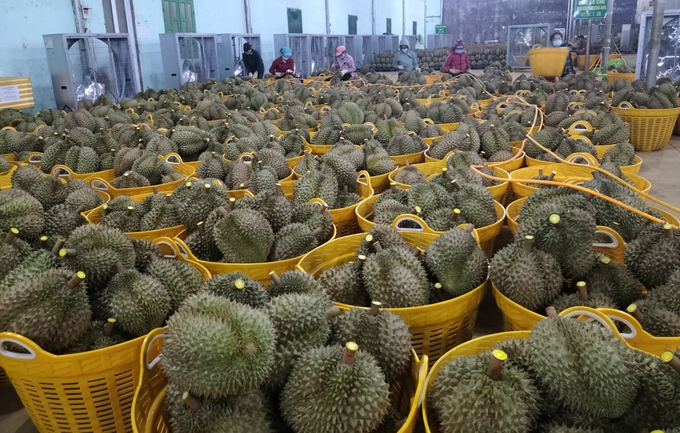
Businesses are willing to bring durian to China through the official channel. Photo: Quang Yen.
The Director of the Sub-Department added that Dak Lak is the province with the largest area evaluated by GACC in this phase. In preparation for the evaluation, Dak Lak invited experts from the Department of Plant Protection to guide the locality over a year ago.
“The GACC evaluation process is always centered on the prevention of the Covid-19 pandemic, food safety and pest issues. In the long run, when China agrees to allow durian exports through official channels, there will be a large amount of work to be done. Therefore, for long-term export, it is necessary to attribute responsibility to local authorities, businesses and farmers for controlling growing areas, pests and diseases among other aspects.
This is the first time that Dak Lak has been inspected on such a large growing area, so the province also faces considerable difficulties. But so far, the registered growing area codes have been evaluated and stakeholders are waiting for the Chinese side to announce the list of qualified units", said Mr. Thanh.
According to Mr. Le Van Thanh, Dak Lak registered to officially export durian, passion fruit and Japanese purple sweet potato to China in 2021. The province has at least 1,000 hectares of passion fruit, and this fruit is currently being exported through 7 border gates. However, Dak Lak is approaching the durian season so the province will prioritize this item. After the durian season ends, the next time the Sub-Department will coordinate with the authorities to organize training courses and procedures on exporting passion fruit for businesses, cooperatives and farmers.
Translated by Nguyen Hai Long - Samuel Pham
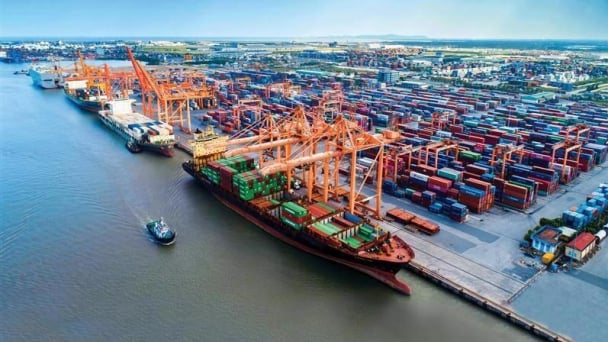
(VAN) South Korea is currently the second-largest investor in Hai Phong in terms of the number of projects (186 projects) and the largest in terms of total registered investment capital, reaching USD 14.2 billion.
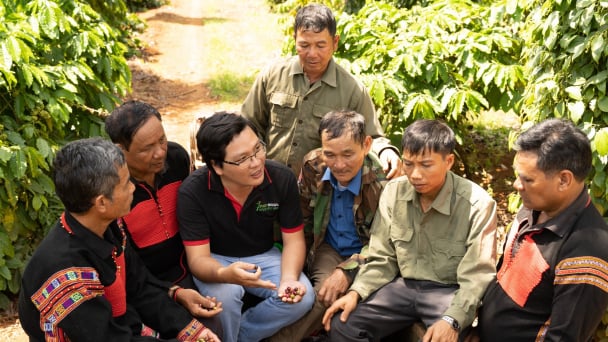
(VAN) As consumers become more environmentally conscious, legal regulations grow increasingly stringent...
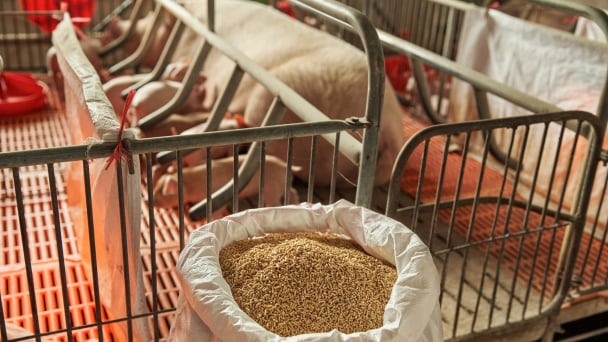
(VAN) CJ Feed&Care officially launched the FCR improvement campaign called “2025 Find Challenge Reach” in April 2025. In Vietnam, this campaign is implemented by CJ Vina Agri.
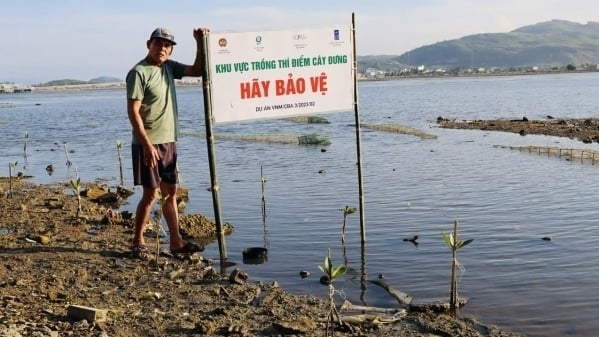
(VAN) The swamp in Pho Thanh is gradually being covered with red mangrove, creating a favorable environment for producing clean, high-quality salt.
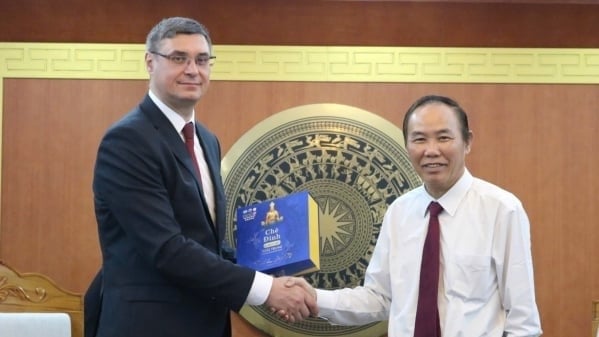
(VAN) The trade turnover of agro-forestry-fishery products is growing significantly, along with investment cooperation commitments that are opening up new development directions between Vietnam and Russia.

(VAN) Khanh Hoa is investing over 545 billion VND to develop 240 hectares of high-tech marine aquaculture in order to guarantee a consistent supply of seafood exports and achieve the USD 1 billion target.

(VAN) Minister of Agriculture and Environment Do Duc Duy held a meeting with Soopakij Chearavanont, Chairman of C.P. Group, on May 15.